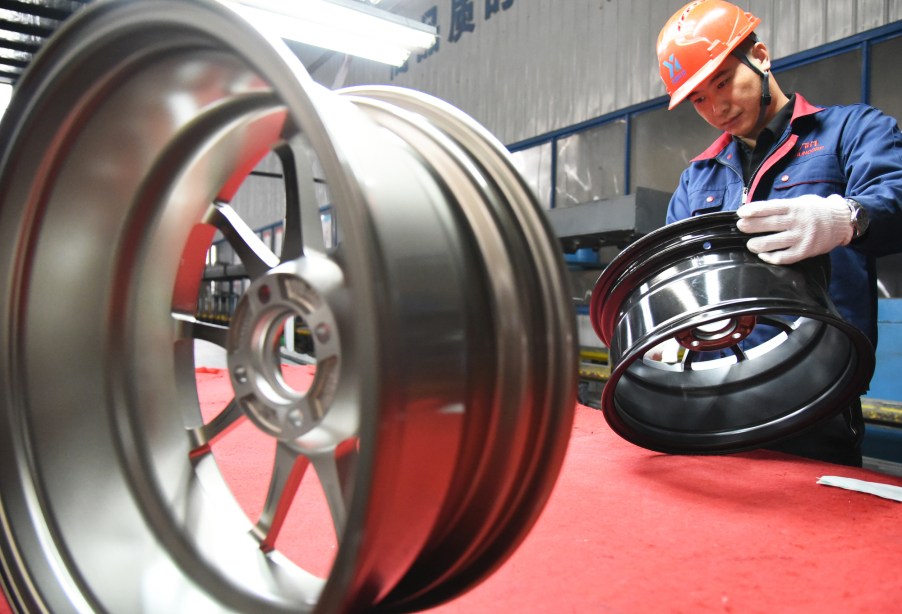
Are Aluminum Alloy Wheels Worth It?
Steel wheels may be more affordable than aluminum alloy wheels, but as it turns out, the pricier option may actually save you money in the long run. Aluminum wheels are an immensely popular add-on when people purchase new cars, and for good reason: They have a huge number of benefits, according to Les Schwab. Here’s what you need to know to decide whether aluminum alloy wheels are the right choice for you.
The benefits of aluminum alloy wheels
Aluminum alloy wheels combine aluminum and nickel to create a lightweight wheel that is still durable and high-performing. Superior Industries observes that compared to steel wheels, a car outfitted with aluminum can be over 100 pounds lighter.
This lighter weight means that vehicles with these wheels will have better gas mileage, thus saving money over time. Lighter wheels also improve a car’s acceleration and braking speeds, which is useful for anyone but particularly appealing for drivers of performance cars. Their low amounts of inertia while spinning also mean that aluminum alloy wheels are easier on the brake system, resulting in fewer repairs.
While aluminum is an excellent option for performance cars, they also have a number of advantages when it comes to off-roading. As off-road wheels must be fairly large, a lightweight option means that the vehicle can have powerful wheels without adding too much extra weight. Additionally, Superior Industries notes that breakage in aluminum alloy wheels tends to be significantly less serious than breaks or cracks in steel wheels.
Performance-based benefits aren’t the only advantages either. They are also aesthetically appealing, with a range of finishes that are customizable based on the driver’s needs. Options here include painted, bare polished, chrome, and PVD.
Where they fall short
Although aluminum alloy wheels have a vast range of advantages, there is one area in particular where they come up short: they are very expensive. Steel wheels are a significantly more affordable option, which is why automakers tend to opt for them over the more durable, lightweight aluminum alloy option.
Additionally, while wheels made out of aluminum are fine for use in all seasons, they are slightly more difficult to maintain than steel wheels. Bare polished and chrome-plated wheels specifically require regular cleaning if you are driving in an area that often uses salt and chemicals to deice the roads. Steel wheels, on the other hand, hold up well in these conditions and rarely require maintenance.
Chrome-plated and bare polished aluminum alloy wheels have another disadvantage: They are more likely to experience scratching and oxidation. This can be particularly frustrating given their high price.
Is the price tag worth it?
Despite their potential issues, aluminum alloy wheels are well worth the investment for anyone who has the budget for them. While they may have a higher upfront cost, they do save money over time. With aluminum, you will spend less money on gas and won’t have to bring your vehicle to the shop as frequently.
Aluminum alloy wheels are a particularly good choice for anyone who drives a performance car, plans to go on lots of off-roading adventures, or highly values aesthetics. However, for people who don’t drive as frequently, or who live in areas where it is cold and snowy for long stretches of time, the convenience and affordability of steel wheels might win out.
Overall, though, it’s easy to see why aluminum alloy wheels are such a popular add-on. They are the perfect blend of attractive and practical, no matter what kind of vehicle you drive.


